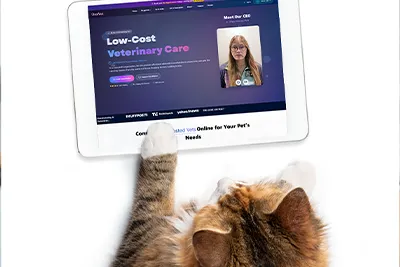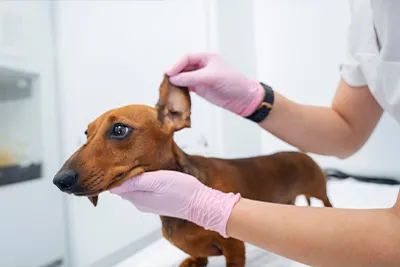How to Save Money on Pet Healthcare Without Compromising Quality
By Rexvet

Pets are not just our companions, but also members of the family. Therefore, taking care of them is our biggest responsibility. But in the USA veterinary costs are sometimes so high that many people are worried—how is it possible to get good quality treatment at a low cost? The good news is, by following some smart decisions and small tips, you can easily ensure quality treatment for your pet, and that too within your budget.
If you want to make your pet's health care at a very affordable price without compressing the quality in the USA, then the best choice can no longer be from RexVet. We are a non-profit organization, where the health care of your pet is not only available and affordable, but also a humanitarian initiative. Our experienced vet professionals are ready 24/7, with your own pharmacy - so you get the service at any time. The most beautiful thing is, when you take our service, a portion of it is used as a donation with the help of helpless animals. That is, if you choose RexVet, you are not only taking care of your favorite pets, but also spreading light in the lives of other animals.

Understand Your Pet’s Healthcare Needs
Many of us think that if the animal is ill, then it is only to be taken to the vet. In fact, this is the biggest mistake. The truth is, if you know regular care, planning a little earlier, you can not only reduce the cost, you can keep your favorite partner healthy for many days. Affordable health care does not mean just low cost treatment. Rather, it is a smart lifestyle, where small care and awareness will save you from the big problems of the future.
Routine Checkups and Preventive Care
Regular checkups act as a kind of safety net for your pet. Many diseases can be caught early by getting a vet checkup at least once or twice a year. This makes treatment easier and costs much less.
Preventive care refers to vaccinations, dental care, flea and tick prevention, and ensuring proper nutrition. Although these can be done at a low cost, they can save you thousands of dollars in medical expenses in the future. So remember, the best way to save money on pet care is to invest in prevention in advance.
Age and Breed-Specific Health Requirements
Not all pet care is the same—this is a big misconception. Caring for a small puppy means giving him timely vaccinations, keeping him active through sports, and feeding him the right food. Again, needs also change as he gets older. For example, joint checkups, light walks, and a special diet are very important for older dogs.
In addition, there are some different things to keep in mind depending on the breed. For example, German Shepherds are more likely to have hip problems. Persian cats also have breathing or eye problems. Being aware of these issues in advance will not only reduce costs, but it will also make it easier to ensure the well-being of your pet.
Common Illnesses and Early Detection
Skin allergies, diarrhea, tooth decay, or ear infections—these problems are very common in pets. The good news is that if they are caught in time, treatment is faster and the cost is much lower.
But many times we ignore small symptoms—the result is the opposite. The problem then becomes complicated, the treatment is expensive, and your animal also suffers unnecessarily. Therefore, it is important to pay attention to changes in behavior, decreased appetite, or unusual itching—without neglecting these things. Taking timely action will save you money and your beloved companion will recover much faster.
Affordable Options for Veterinary Care
Veterinary costs in the USA often put a strain on the family budget. However, the good news is—if you make some smart decisions, you can reduce the costs a lot, and there will be no reduction in the quality of care for your pet. In fact, affordable vet care in the USA means finding options that are safe for your pet and cost-effective in the long run.
Preventive Measures That Reduce Vet Visits
The most cost-effective way is to prevent problems before they occur. Regular vaccinations, parasite control, dental cleanings, and a proper diet boost your pet's immunity. This reduces the number of emergency vet visits and can save you from major expenses. Remember, the most effective way to save money on pet care is to invest in preventive care.

Telemedicine Consultations for Minor Issues
Not all problems require a trip to the vet clinic—many people don't know this. Suppose your dog has a mild skin allergy, your cat is suddenly eating less, or is having digestive problems—there is no need to immediately go to the clinic and pay a large bill for these minor issues. Most modern vet clinics in the USA now offer telemedicine services, where you can get expert advice online by video calling, chatting, and even sharing photos or reports.
The biggest advantage of these telemedicine consultations is that they save both time and money. You get primary care for your pet without leaving your home, and you can save a lot of money on the average vet visit, unless it’s an emergency. In many cases, the fee for these online consultations is only one-third, making them really budget-friendly for you.
But keep in mind—if the problem is serious, such as shortness of breath, sudden injury, or persistent vomiting, you should definitely go straight to the clinic. Telemedicine is ideal for minor problems, follow-up care, and medication-related questions.
DIY and Home-Based Pet Care Tips
Pet care doesn't always mean going to the vet. Sometimes, following some simple care techniques at home can help your pet stay healthier, happier, and more energetic. Here are some home-based tips that will not only reduce costs, but also deepen the bond between you and your pet.
Nutrition and Diet Tips to Prevent Health Problems
The right food for your pet is the best medicine. Many diseases are actually caused by a wrong diet.
Always feed age-appropriate food. For example, there is a big difference between puppy/kitten food and adult food.
Avoid preservative-filled or overly processed foods.
Always keep fresh water available—this solves many problems.
You can occasionally use small supplements (such as fish oil for coat, probiotics for digestion) in consultation with your vet.
Exercise and Mental Stimulation for Healthy Pets
It is equally important to keep your pet’s mind active, not just their body. A regular walk every day is not only a physical exercise, but also an opportunity for them to discover the outside world in a new way. Toys, puzzle feeders or short training sessions help keep them mentally sharp. Climbing trees, scratch posts and small toys are great for cats, and fetch, tug-of-war or obstacle games for dogs provide them with a wonderfully engaging experience. Such activities not only relieve boredom, but also help reduce unnecessary mischief or behavioral problems.
When Home Remedies Are Safe to Use
It is important to remember that not all problems can be solved at home. However, in some cases, home remedies are completely safe in many cases.
Mild skin problems: An oatmeal bath or coconut oil can reduce minor irritation.
Minor digestive problems: Plain boiled rice or pumpkin puree often works for dogs.
Seasonal allergies: A clean house and regular grooming help.
Keeping your body cool: Wipe your body with a cloth soaked in cold water during summer.
However, if there is any serious problem (vomiting, reluctance to eat, excessive fatigue, shortness of breath), you should go to the vet without delay.
Smart Spending Strategies for Pet Healthcare
Pet care is not just about love and affection, but it also involves financial considerations. Sometimes vet bills can seem overwhelming, but planning ahead can make things easier. Smart spending can help ensure that your pet gets the best care possible, and you can stay on top of your budget. By following a few simple strategies, you can balance care and expenses.
Budgeting for Routine Care
Daily food, vaccinations, regular checkups—these are not actually expenses, but rather a kind of investment to avoid big expenses in the future. Therefore, it is wisest to keep a “pet care fund” aside in your monthly budget. This way, you will not have to take sudden financial pressure for routine care. In addition, it is possible to save a lot of money by choosing a vet clinic that offers discount packages or annual wellness plans.
Planning for Emergencies
Emergencies never come by—a sudden accident, injury, or illness can create a big bill. That’s why it’s important to have an emergency fund in place. Many people save a little each month, while others use a credit line or pet-specific financing option. This way, when the need arises, you won’t have to worry about finances when it comes to taking care of your pet.
A little preparation and planning can make your pet’s healthcare costs much easier and stress-free.
When Every Appointment Helps More Than Just Your Pet
RexVet is not just a vet care service, but a non-profit organization working to make pet healthcare accessible to everyone. With our expert doctors and our own pharmacy, you can rest assured that your furry friends will be safe. Don’t worry, we’re available 24/7, so you can get advice whenever you want. Each of our plans is designed to provide you with quality care at a low cost. With the Per Appointment Plan, you can get a vet consultation anytime for just $35, which is ideal for busy pet parents. And if you’re thinking about regular care, the Family Plan offers multiple virtual vet appointments, special prescription discounts, 48 hours follow up messaging and video calls, and free shipping on orders over $49 for just $10 per month or $120 per year.
Isn't this the best example of affordable pet healthcare without compromising on quality in the USA?
The best part is—when you purchase one of our plans, a portion of it goes to charity. These donations help ensure the safety and support of pets who may not receive regular care due to financial constraints. This means that you are not only taking care of your own pet, but you are also extending a helping hand to helpless and disadvantaged animals. Your small decision can make a huge difference for another animal. So what are you waiting for, keep your pet healthy and help helpless animals at the same time through your appointment now.

Conclusion
It doesn't take much to keep your pet healthy—just proper planning and regular care. Routine checkups, proper nutrition, mental exercise, and preventive care keep your pet happy and healthy. Keeping an emergency fund and getting pet insurance, if needed, can help reduce stress from unexpected expenses. Small precautions can help prevent big bills in the future—start small today, and your pet and your mind will be grateful.